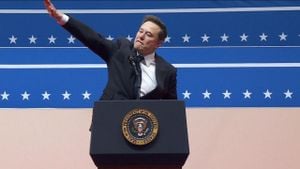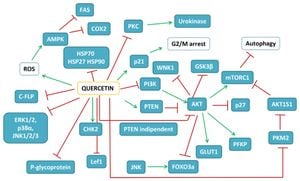Donald Trump, back in the White House as the 47th president of the United States, wasted no time making headlines on January 20, 2025, by swiftly signing a wave of executive orders. With the stroke of his pen, Trump has kicked off what could be another contentious term filled with significant political and social repercussions.
Among the first orders of business was his announcement to withdraw the United States from the World Health Organization (WHO), claiming, "The WHO has scammed us," just hours after being inaugurated. This move was part of his broader critique of the organization, which he accused of mismanaging the COVID-19 pandemic and being overly influenced by China. This withdrawal echoes Trump’s past sentiments during his previous administration when he threatened to exit the organization amid complaints about its handling of the pandemic.
Trump’s rationale for this drastic action centered around what he described as the disproportionate financial contributions made by the U.S. compared to other nations, particularly China. He called for federal agencies to halt any future funding or support to the WHO and encouraged them to seek credible American and international partners to fill the gap left by the organization. The U.S. has historically been one of the largest contributors to the WHO, accounting for about 18% of its budget, which makes Trump's withdrawal particularly impactful.
The withdrawal is expected to unsettle international public health efforts, especially concerning pandemic responses. Experts have warned of the consequences of losing access to important epidemiological surveillance data, which can hinder the U.S.’s ability to respond effectively to future health crises. Tom Frieden, former director of the Centers for Disease Control and Prevention, articulated his concerns, stating, "The decision to leave the WHO weakens America’s influence and increases the risk of devastating pandemics, leaving us all more vulnerable."
Further complicator of his public health narrative, Trump also proclaimed an energy emergency aimed at ramping up hydrocarbon production domestically. "We will drill, baby, drill," he asserted, reviving his campaign slogan to bolster fossil fuel industries as part of his administration's efforts to increase American energy independence.
Trump’s executive orders did not stop at just health and energy. He swiftly declared a state of emergency along the southern border, stating his administration would "begin sending millions of criminal foreigners back where they came from." This decree effectively rescinded the asylum processes established under the Biden administration, instantly halting the operations of programs aimed at aiding refugees.
Another dramatic action has been Trump's summoning of pardons for over 1,500 supporters who had participated in the January 6, 2021, Capitol riots. He characterized them as "hostages" of the system, claiming these pardons were aimed at reconciling past grievances against political opponents. This gesture, lauded by his supporters, faced sharp criticism from figures like former House Speaker Nancy Pelosi, who condemned the move as disrespectful to the judiciary.
Trump also took aim at policies supporting transgender individuals, declaring the U.S. would only recognize two genders defined at birth. His administration plans to strip federal funding from any programs promoting gender diversity, creating considerable backlash from advocates for LGBTQ+ rights. The decree issued also mandates federal agencies to cease any efforts to promote what Trump calls "gender ideology."
Further stirring the pot, Trump signed another executive order temporarily delaying the enforcement of legislation aimed at banning the TikTok app within U.S. borders, citing his need for time to consult with advisors on the matter. This reflects his administration's contentious history with the social media platform over data privacy and national security concerns.
With these sweeping changes, Trump has signaled his intention to redefine American policies heavily influenced by his administration's priorities. Analysts foresee these moves igniting fierce political debates across the country, as Democrats and non-Trump supporters gear up for what could be another tumultuous period.
Public reaction has been mixed, with his supporters celebrating the bold steps of his new administration, viewing it as the fulfillment of longstanding campaign promises. Critics, on the other hand, are apprehensive about the ramifications of withdrawing from global partnerships like the WHO, especially amid growing health crises.
Only time will tell how these executive actions will shape Trump's second term and the broader political climate of the United States. The outcomes will heavily depend on public sentiment, operational effectiveness, and perhaps more significantly, the reactions from the global community to America’s new approach toward international cooperation and domestic policies.



